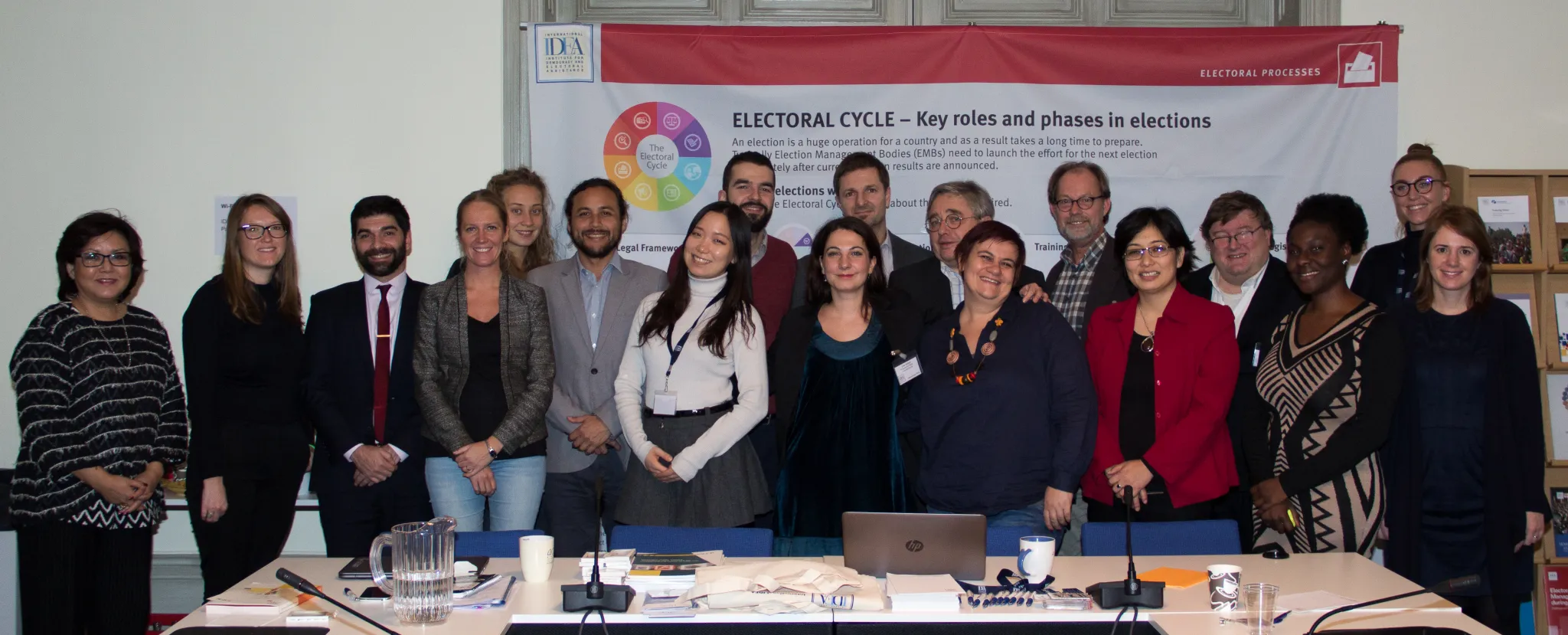Promoting equal and full participation of underrepresented groups throughout the electoral cycle

For elections to meet international standards, inclusion of underrepresented groups should be ensured, affirmed participants at a workshop on “Marginalized Groups in Electoral Processes” organized by International IDEA in Stockholm, on 22-23 November 2016.
The workshop brought together 20 experts in the areas of elections, democracy support and human rights, to discuss the different challenges and strategies for inclusion of marginalized groups in electoral processes. Among the workshop participants were representatives of the Council of Europe, the OSCE/ODIHR, the International Organization for Migration (IOM), the UNDP, the National Democratic Institute (NDI), the Unrepresented Nations and Peoples Organization (UNPO), the EU Fundamental Rights Agency, the Electoral Institute for Sustainable Democracy in Africa (EISA), the European Center for Electoral Support (ECES), as well as experts working with International IDEA in Stockholm, Africa, Myanmar, and Peru.
During the workshop, participants shared the lessons learnt from their work with various marginalized groups, including women, youth, LGBTI people, ethnic and religious minorities, people with disabilities, internally displaced people, and people living in remote areas. In particular, participants identified several institutional, operational and political obstacles limiting the effective exercise of marginalized groups’ right to vote and get elected.
One of the challenges highlighted by several participants was that existing legal provisions on equal participation of marginalized groups often fail to be translated into effective policy actions. The establishment of adequate enforcement and monitoring mechanisms to assess compliance with non-discrimination provisions and affirmative action measures was therefore put forward as a recommendation. Another key challenge that was identified was the lack of accurate and reliable data, which makes it difficult to assess the situation of certain marginalized groups. Thus, the need for systematic collection of disaggregated data and the importance of collaboration among EMBs, state institutions and other electoral stakeholders were also emphasized.
In addition, participants at the workshop noted that political exclusion of certain groups may cause voter apathy or violent tensions. “Youth participation in electoral processes is crucial, as people under 35 years old account for approximately 65% of the total African population. When young people do not have chances to influence the political landscape in their countries, they may turn to civil disobedience or violence.”- pointed out Mette Bakken, International IDEA’s Programme Officer in Africa and West Asia Region.
The lack of understanding and awareness on issues related to marginalized groups such as LGBTI people and people with disabilities, was also underlined. In this regard, participants suggested a number of actions that EMBs and election assistance providers can take at both national and local levels. These include training of election officials on the rights of and the specific issues facing marginalized groups; building the capacity of facilitators from marginalized communities that will subsequently carry out voter education activities in their communities; ensuring systematic representation of marginalized groups in voter information materials such as videos, leaflets and booklets; and conducting inclusivity audits of voter lists as well as EMBs’ strategic plans and budgets.
Finally, acknowledging that marginalized groups are not homogenous, participants stressed the importance of building alliances among the different groups in order to transfer knowledge and maximize advocacy efforts.




